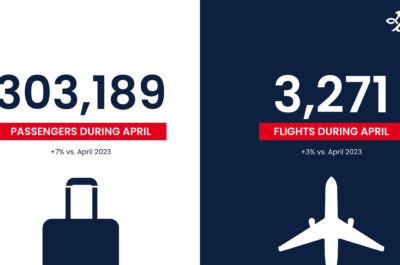
This article explains how HubSpot can help marketers balance personalization and privacy.
In today’s digital age, personalisation has become a key driver of successful marketing strategies. By tailoring content, offers, and experiences to individual preferences, marketers can create more meaningful connections with their target audience. However, as the demand for personalised experiences grows, so does the need to strike a balance between personalisation and data privacy.
HubSpot, a leading marketing automation platform, offers powerful tools and features that enable marketers to personalise their campaigns while respecting customer data privacy. This article explains how HubSpot can help marketers balance personalization and privacy.
Regulations on data privacy
Data privacy has gained significant attention worldwide in recent years, leading to the introduction of strict regulations aimed at protecting individuals’ personal information. These regulations are designed to ensure that organisations handle customer data responsibly, maintain transparency in their data practices, and give individuals greater control over how their information is used.
One of the most famous regulations is the General Data Protection Regulation (GDPR), which came into effect in the European Union in 2018. The GDPR sets strict rules for how organisations collect, process, store, and transfer personal data of EU citizens. It grants individuals rights such as the right to access their data, the right to be forgotten, and the right to data portability. Non-compliance with GDPR can result in substantial fines and reputational damage.
Another notable regulation is the California Consumer Privacy Act (CCPA), enacted in 2020 in the state of California, United States. The CCPA grants consumers greater control over their personal information by requiring businesses to disclose the types of data they collect and to whom it is sold. It also gives consumers the right to opt out of the sale of their data and provides them with the ability to request the deletion of their personal information.
These regulations, and many others around the world, have a significant impact on marketers, as they dictate how customer data can be collected, stored, and used for marketing purposes. Marketers must ensure they comply with these regulations to protect customer data privacy and avoid legal consequences.
How HubSpot complies with data privacy
Data privacy is a top priority for HubSpot, and the platform has implemented comprehensive measures to ensure compliance with data privacy regulations. By adhering to these regulations, HubSpot provides users with a secure and trustworthy environment to handle customer data. Below, we’ll dive deeper into how HubSpot complies with data privacy.
HubSpot maintains data security practices to protect customer data from unauthorised access and breaches. The platform employs encryption protocols to secure data transmission and storage, ensuring that sensitive information is safeguarded at all times.
HubSpot is fully compliant with major data privacy regulations such as the GDPR, POPIA, CCPA and many more. HubSpot offers features that enable users to manage data subject rights, including the right to access, rectify, and erase personal data. It also provides options for lawful data processing and facilitates compliance with data breach notification requirements.
HubSpot understands the significance of obtaining proper consent for data processing activities. The platform provides tools and features that enable marketers to capture, record, and manage consent effectively. Users can create and customise consent forms, track consent status, and automate consent renewal processes.
HubSpot allows people to exercise control over their personal information through transparent privacy settings. Users can easily access and manage their data, update communication preferences, and exercise their rights as data subjects. HubSpot’s privacy settings provide individuals with transparency and control, fostering trust between businesses and their customers.
HubSpot offers data processing agreements (DPAs) to its users, outlining the responsibilities and obligations of both parties in ensuring data privacy. These agreements comply with applicable data protection laws and provide clarity on how customer data is handled within the HubSpot platform.
How to ensure data privacy compliance
Even with all of HubSpot’s data compliance features, marketers must protect customer data and maintain trust with their audience by following best practices. Here are some guidelines that all marketers should follow:
- Understand applicable regulations
Start by familiarising yourself with the data privacy regulations that apply to your business. Depending on your geographical location and the nature of your operations, you may need to comply with regulations such as the GDPR, CCPA, or POPI Act. Understand the requirements, rights of data subjects, and obligations placed on businesses under these regulations. - Obtain proper consent
Obtain explicit and informed consent from individuals before collecting and processing their personal information. Implement consent management mechanisms to record and manage consent effectively. Communicate the purpose of data collection, the rights of data subjects, and any third parties involved in data processing. Make it easy for individuals to withdraw their consent if they choose to do so. - Implement security measures
Ensure the security of customer data by implementing appropriate technical and organisational security measures. This includes using secure servers, encryption protocols, access controls, and regular security audits. Train your employees on data security practices and establish clear guidelines for data handling and protection. - Provide transparency and control
Give people transparency and control over their personal information. Communicate your privacy policies, data handling practices, and how individuals can exercise their rights as data subjects. Offer options for individuals to access, update, or delete their data and honour their requests promptly. - Educate your team
Data privacy compliance is a collective effort. Educate your marketing team about data privacy regulations, their responsibilities, and the importance of safeguarding customer data. Regularly update them on any changes or updates to relevant regulations and provide training on best practices for data privacy. - Keep Records and Documentation
Maintain proper documentation of your data privacy practices and processes. Document the legal basis for data processing activities, data retention policies, consent records, and any data protection impact assessments conducted. These records will be valuable in demonstrating compliance during audits or in response to regulatory inquiries. - Regularly review and update policies
Stay up to date with evolving data privacy regulations and industry best practices. Regularly review and update your privacy policies, consent mechanisms, and data handling practices to ensure they align with current requirements. Regularly reassess your data privacy measures to address any emerging risks or challenges.

























































































































































































































